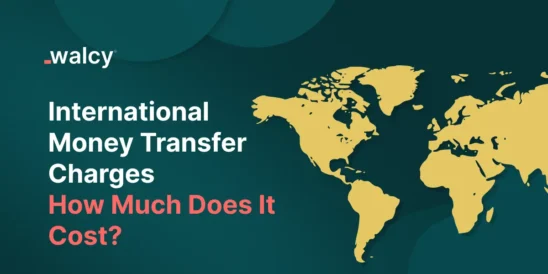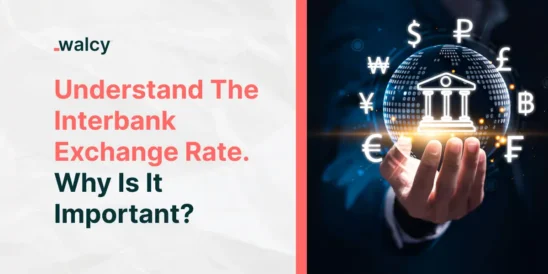The major reason to efficiently manage foreign exchange payments or “FX payments” is to conduct international trade.
International FX payments are most common these days while making overseas payments.
This blog article discusses the principles of the forex market and elaborates on the main factors that influence the rates of the exchange, types of foreign exchange risk, and how to manage these risks.
Additionally, it also describes a few of the tools to stay on top of the forex, give best elements/practices, and answer some of the most frequently asked questions.
What Is Forex And Why Is It Important?
Foreign exchange is the market wherein trade in currencies occurs. It is one of the largest markets with an average daily volume of more than US$6 trillion.
Businesses conduct international FX payments to conduct international purchases and sales of goods, services, and assets, and hedge to reduce the risk associated with fluctuations of a currency in its value.
They also use it to benefit from speculation on fluctuations of a currency.
Forex holds great significance to firms operating internationally since it influences business pricing and profitability and, hence, competitiveness.
Changes or fluctuations in this exchange rate affect the import cost, export cost, profit margin as well as the entire financial well-being of firms to a great degree.
Factors That Affect Foreign Exchange Rates
- Economic Indicators:
GDP growth rates, inflation levels, unemployment rates, and industrial production data are some of the key economic indicators that are widely considered to be critical determinants of the trajectory of exchange rate movements. Thus strong economic performance is often linked with currency appreciation.
- Interest Rates:
Even a minor event, like an interest rate hike or cut by central banks, has been known to affect the currencies’ value drastically. An interest rate hike would attract foreign investments; firstly, it raises demand for that currency, and secondly, it strengthens its value.
- Political Stability and Economic Factors:
However, political stability, government policies, geopolitical events, and economic performance will drive currency stability and investor confidence. The perceived stability of the currency will be higher in those countries with stable governments and strong fundamentals.
(Know in depth about the factors affecting foreign exchange rate)
Types Of Foreign Exchange Risk
-
Transaction Risk
Forex trading is monitored by governments and monetary authorities all over the world. Businesses must comply with regulations regarding currency trading, financial transactions, anti-money laundering (aml), and know your customer (KYC).
-
Translation Risk
Translation risk is relevant to a multinational corporation with subsidiaries operating in other nations. Exchange rates fluctuate over time, influencing the value of assets, liabilities, revenue, and costs when the subsidiary’s financial statements are translated for consolidation purposes.
-
Economic Risk
It is also known as operating exposure. In the long term, it deals with exchange-rate changes that can alter significantly a firm’s cash flows, profitability, and competitive position. It encapsulates the effects of exchange rate changes on competitive dynamics, pricing strategies as well as on market demand.
How To manage Foreign Exchange Risk
Hedging with Derivatives
Forward, future, option, or swap are some commonly used derivatives for hedging foreign exchange risk. Each of these instruments ensures the fixing of the exchange rate, safeguards adverse movement in the currency, and also provides some predictability about cash flow.
Dynamic Hedging
This will involve dynamic and continuous adjustments of the positions or instruments used to hedge against market moves and changes in all types of risk exposures. Thus, it shall involve active monitoring of the trends of the currency involved and making effective decisions toward maximizing the effectiveness of hedging.
Cross-Currency Swaps
The cross-currency swap enables the corporates to exchange different cash flows between different currencies for a definite period. The cross-currency swap hedges or actually reduces enormous currency risk exposure that arises either because of financing, investment, or debt obligations whose cash flows, by designation, are in foreign currencies.
Who Needs International FX Payment?

Businesses
Businesses needs international FX payment to purchase various raw materials. Moreover it is also used while selling and purchasing stocks and other assets. also it is useful in paying salary for the employees. Here are few points by which foreign exchange helps the business.
- Revenue Conversion:
This is used to translate the amount of money received from foreign regions back into home currency to oversee other monetary experiences and pronouncements.
- Cost Management:
The efficiency of money and resources to be allocated in managing operational costs in different currencies.
- Hedging:
Utilize financial securities in managing risks associated with exchange rates which would likely have an undesired detrimental effect on the profits.
- Cash Flow Stabilization:
Control funds by reducing the fluctuation risk between currency that operations are conducted as well as that of receipts thus making the resultant cash flows more predictable.
Individuals
- Travelers: Convert money for paying for basic needs during a visit including meals, a place to sleep, and movements in the foreign place.
- Students: This often results in paying tuition fees and living expenses in the local currency that frequently requires exchanging often.
- Investors: Maturity of capital by converting it to different currencies since they needed to purchase foreign assets in order to diversify their investment portfolios.
Here are some of the benefits of international FX payment for individuals
- Financial Transactions: Perhaps the main and most obvious use of international money transfer is to conduct financial transactions efficiently and without much problem when sending money or buying property in another country.
- Risk Mitigation: Take measures that will help them to minimize on risks associated with fluctuation in the foreign currency so as to avoid getting into a situation whereby their assets reduce in value or when the cost of their expends in a foreign currency increases.
Managing International FX Payments
Strategic Planning:
The strategy ought to be developed in a comprehensive fashion that would hedge the forex risks while being relevant to existing business objectives, covering risk tolerance, market disposition, and hedging strategies that would segregate specific currency exposures.
Risk Monitoring and Analysis:
Keep regular monitoring of the forex markets, besides the analysis of the trends of currencies and their impact on business functioning, to be ahead in strategy by modifying hedging techniques and curbing exposure to risks.
Continuous Education and Adaptation:
Stay up to date on forex market trends, technical breakthroughs, and regulatory changes so that you can constantly adapt and enhance your forex operations.
Conclusion
Efficiency in terms of foreign exchange payments is necessary for both the company and private individuals under any form of international exchange transaction.
To major corporations operating across national borders, efficiency in profitability, as well as competitiveness in view of currency fluctuation, requires proper comprehension of the dynamics of the forex market, implementation of hedging strategies, and use of sophisticated financial instruments such as cross-currency swaps.
Strategic planning, monitoring risk, and dynamic practices in hedging help guarantee cash flow stability and prevent erosion of its financial health.
Market trend updates can reflect risks and brings optimizations in one’s finances for both individuals, be it traveling, studying abroad, investing, or conducting any financial transaction.
Therefore, in the end, knowledge of forex managing principles brings financial stability and helps to participate proactively in the global economy.
Read about: All About Overseas Payments (2025); Comprehensive Guide
FAQs
What Are The Benefits Of Using Derivatives For Forex Hedging?
Firms benefit from financial derivatives such as forward contracts and options, which give flexibility, predictability, and risk management skills. They may efficiently control their currency risks and even protect profit margins from adverse exchange rate movements.
What Are The Advantages Of Blockchain Technology In International FX Payment?
It eliminates middlemen involved in transactions, hence reducing transaction costs. It also helps in settling the transactions faster. Smart contracts also automate and execute the trades without trust, making the whole process much more operationally efficient and transparent.
How Can Businesses Ensure Compliance With Forex Regulations?
Businesses have to maintain strict and firm compliance programs, conduct regular audits of the operations and update all the regulatory changes. The most important thing is to comply with AML/ KYC regarding all the risk factors associated with financial crimes and maintain regulatory compliance
What Is Strategic Planning For The Management Of Risks Related To FOREX?
Strategic planning will therefore involve an analysis of currency exposures, market conditions, and risk tolerance in order to create personalized strategies in terms of hedging. Forex strategies should match the overall financial objectives for any given business. Strategies should not be static but be reviewed and adjusted tea in tandem with changing market dynamics.
Know everything about overseas payment.
Do follow us on Facebook and LinkedIn, to stay connected with us.



